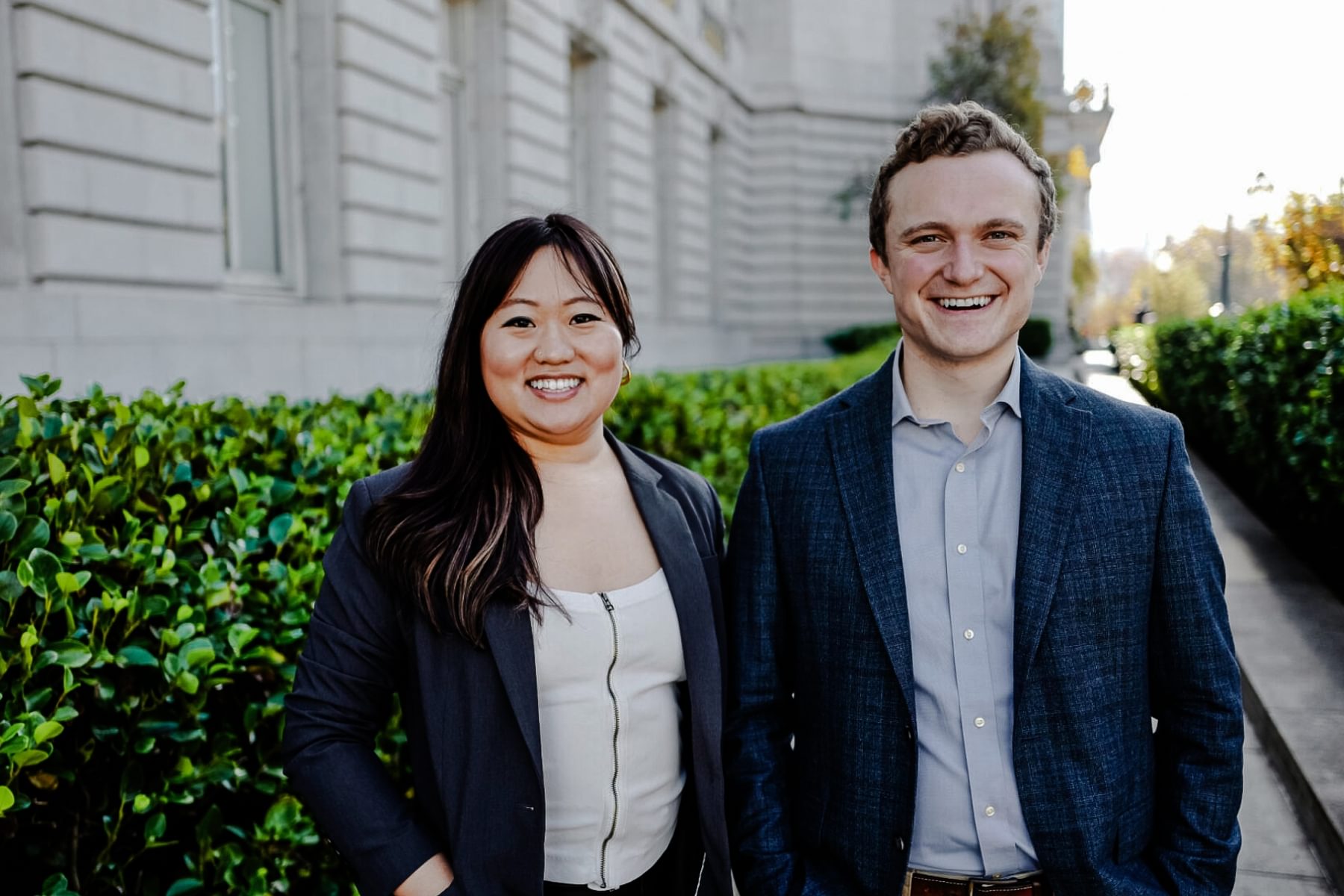Latinx entrepreneurs and businesses have always contributed enormously to the shape of American life. According to Dr. Geraldo Cadava, Latinx entrepreneurs have “created markets, played pivotal roles in the development of their communities, and emerged as political organizers and leaders.” Today, Latino owned businesses are growing faster than any other segment of small businesses. A report by the Stanford Latino Entrepreneurship Initiative found that from 2018 to 2020, “Latino owned firms grew revenues at an average of 25% per year, while WOB [white-owned businesses] grew at 19%.”
However, despite these positive numbers, Latino-owned employer businesses are far less likely than white-owned employer businesses to have loan applications approved by national banks. When it comes to venture capital, “[l]ess than 1% of funds from the top 25 venture capital and private equity firms wind up in the hands of Latino-owned businesses…” Despite the record of Latinx entrepreneurial success, lack of access to capital hampers their growth and ability to scale. This must change.
At the Harvard Innovation Labs, we are listening to and learning from Latinx entrepreneurs both inside and outside of our ecosystem. We are proud to support them within our programs, and proud to be part of a wider network of support here at Harvard. This month, we spoke to four Latinx entrepreneurs in our Launch Lab X GEO community to hear about the incredible ventures they’re building and their perspectives on entrepreneurship.
Jeronimo Beccar of Hyka Therapeutics
Describe your venture. What inspired you to start it?
Jeronimo Beccar: I lost someone close to suicide. My friend had taken antidepressants for years before it happened. Many years later, I learned that this was not an isolated case. Roughly 50 million people in the US take antidepressants every year. For about 20 million of them, they don’t work. At this point, people often don’t know what comes next in their care journey. Navigating the mental healthcare system is extremely hard: there’s poor guidance, little awareness around options, uncertainties around cost, endless paperwork. Basically, we are asking people to find a restaurant in a foreign city, blindfolded, without a smartphone! That’s the problem Hyka solves.
We do it by guiding patients from where they get stuck to where they need to go, breaking down the barriers to care. Through triage and personalized content technology, Hyka helps patients from telehealth providers, health plans, and employee assistance programs seamlessly access the latest mental health treatments—from psychedelics to ketamine to brain stimulation.
Hyka exists because our mental well-being depends on finding the right care when everything else has failed.
What challenges and opportunities face Latina/Latino entrepreneurs today?
Beccar: As an immigrant from Argentina, I can’t help but compare what I have experienced in Argentina with the numerous opportunities that we have here in the US, from getting an education to starting companies. However, in the US, there is room for improvement around the funding numbers of venture dollars going to Black and Latino founders.
In 2019, Black and Latino founders accounted for only 2.3% of all venture dollars raised in the U.S. This is down from 2.8% in 2018 when funding to underrepresented founders peaked at $4 billion, the same year funding to venture-backed startups peaked in the U.S. at $141 billion. In short, there is work to be done.
Increased awareness around groups that are historically underfunded, overlooked, and underrepresented has sparked change in leading organizations: from educational institutions to corporations, and even in the venture capital world. The values ingrained in Latinos on companionship, support, and solidarity are an asset when those spread within an organization. I’ve witnessed this first hand and it is one of the reasons why today’s entrepreneurial landscape is a force for change.
What excites you about today’s entrepreneurial landscape?
Beccar: I am very lucky that every entity in the entrepreneurial ecosystem that I have been a part of is supportive of diversity and inclusion. The environments they create for founders and by founders are the most healthy and inspiring I have ever experienced, from student and alumni programs at the Harvard Innovation Labs to the On Deck Health and What If Ventures fellowships.
The founders that I have met along my entrepreneurial journey deserve my admiration, as well, especially those whom I have seen struggle, overcome obstacles, and then succeed. The founders who successfully navigated challenges had an enormous advantage: they received support from their peers, support that was provided selflessly, regardless of gender, race, or background. All in accordance with the unwritten rules we know as founders: do no harm and pay it forward. We all receive help sometimes. In my case, countless times, by investors who invested in my company—and also by those who passed—by mentors, advisors, and more above all, by my fellow founders.
I believe this force of change that is fostered among founders is sparked by diversity which, in turn, ignites empathy. Being an immigrant, minority founder helps us realize how crucial it is to stick together, to empathize with others, and to help each other out to survive.
This realization has been one of the most rewarding experiences in my entrepreneurial journey.
What needs to change?
Beccar: We have to be more aware that founders are a force of change. Change is contagious. And as humans, we often need to see results before changing old habits and beliefs.
How might we take the drive, values, the solidarity culture, and everything that we have seen that works in change-forward organizations driving that lead change to the ones that lag behind? We must take our learnings and adopt them as core values within our own companies. And for those who move on from the startup world to established corporations as leaders, they must bring their values with them.
This is where I think I might be too hopeful or naïve, but I believe that people often push back against change from a place of fear of the unknown or lack of information. Forcing people to change is often received with pushback.
If we want change, let us start where we lead. Companies will grow and get acquired. Things will evolve and founders will move on to large corporations, start other companies, become investors themselves, join VC funds. We have to remember that, as founders, we have the ability to spread change, wherever it is we move on to next.

Natalia Hendrickson and Beth Ann Lopez of Docosan
Describe your venture. What inspired you to start it?
Natalia Hendrickson and Beth Ann Lopez: Docosan is a digital health platform on a mission to revolutionize the way people access healthcare in emerging markets and beyond. Doctors, clinics, and hospitals can create profiles to market themselves to an audience of millions. Customers can book appointments with healthcare professionals for free and order a range of home healthcare services on demand.
We were inspired in part by our own experiences in accessing healthcare. We’ve each faced challenges, not from a lack of skilled doctors, but from problems accessing the right care. Beth had worked in healthcare in Southeast Asia for 7 years at the time that she needed to have a simple procedure done: just removing an IUD. But there was virtually no useful information about the cost, quality, and opening hours of hospitals and clinics online to choose from. She figured that if she didn’t know where to go, how could anyone else who wasn’t an expert in healthcare?
Natalia was looking to access inpatient services after moving to a new city and a new job and found it extremely difficult to understand her options in an unfamiliar environment. Unfortunately, the choice was a necessity and could not be put off for deeper research or strategy, and Natalia accrued significant medical debt.
We’re inspired by technology’s ability to solve problems across industries, empowering customers to make the right choices for themselves.
What challenges and opportunities face Latina/Latino entrepreneurs today?
Hendrickson and Lopez: Latinos make up a significant and growing segment of the market in the U.S. and internationally; in the US alone, Latino buying power is larger than Australia’s GDP. Similarly, the growth of Latino-owned businesses outpaces that of other demographics. Finally, nearly half of all US born Latinos are under 18. Hopefully this fervor for entrepreneurship among Latinos continues as the next generation enters the professional world.
Interestingly, perceptions of Latinos vary greatly throughout the world. Launching a startup in Asia has acted as an equalizer; we are perceived simply as foreigners rather than any specific racial or ethnic background. On the other hand, our shared background as Latinos is part of why we clicked so well. We met at a “cocktails & dogs” hour at a bar and grill and discovered plenty in common… Latinas from the Southwest US, Harvard alumni, healthcare backgrounds, professional interest in Asia, and of course, dog lovers.
What excites you about today’s entrepreneurial landscape?
Hendrickson and Lopez: The entrepreneurial landscape is diversifying fast. Having multiple perspectives competing and collaborating within a space is an exciting way to foster innovation and facilitate success based on merit. At the end of the day, it comes down to how well you innovate and build your business, not about your ethnic background. From what we’ve experienced—despite its inequalities, compared to other fields—startup success is as close to a meritocracy as you can get.

Juan Aristizábal of ProTalento
Describe your venture. What inspired you to start it?
Juan Aristizábal: ProTalento is an education platform that helps launch careers in technology for high-potential youth in Latin America, backed by Village Global, Bolsa de Valores de Colombia and Sophos, and accelerated at the Harvard Innovation Labs. Globally, in 2020, more than one in five (22%) of young people aged 15 to 24 are neither employed nor getting an education or in training. ProTalento provides short training programs online in collaboration with top bootcamps to help our users find their next job. We aim to disrupt the Latin American labor market through holistic support for young talent by creating learning routes, financing studies, and supporting young people in finding and retaining jobs.
What challenges have you faced in your process?
Aristizábal: So many young people do not trust the system anymore. Students face unaffordable training, a skills mismatch with available jobs, and fragmented and uncurated offerings to help them gain those skills. Many of them think every product or service is a scam and are tired of hearing about solutions that do not work for them. We must work as an ecosystem to create better products and services to gain their trust.
What opportunities do you see in today’s world?
Aristizábal: As entrepreneurs, we can use better and cheaper technology to hack big problems. I do not doubt that with the right tools we can change the world. What must change: enterprises must increasingly think and work on real solutions for users. People will trust the private sector more if we create value in every part of the ecosystem. At ProTalento, we like to use a mantra that we borrowed from Google: respect the user, respect the opportunity, respect the ecosystem. To do that, our model is based on working with companies to build the profile they seek in young people for their junior technological positions. We have a job position ready before a user ever decides to use ProTalento as their single guide to navigate their career path.
What inspires you, personally, to pursue entrepreneurship?
Aristizábal: Firstly, the “unmet potential.” Talent is everywhere but opportunities are not. I know there is a huge opportunity to create more jobs and increase prosperity if we help people discover and use their talent.
Secondly, using technology for good. Technology must help humanity solve our biggest challenges. Youth unemployment can be hacked using the right technology: assessment of attitudes and interest, personalized learning plans, and concierge support.





